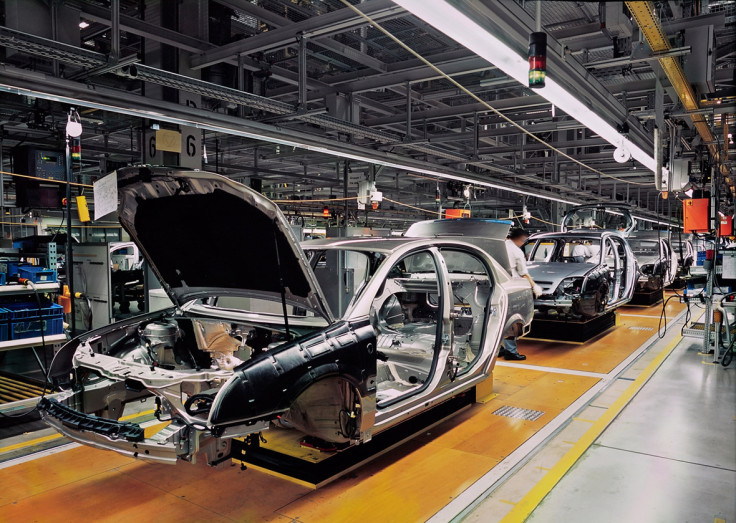UK manufacturing sector grows at fastest pace since June 2014 in December
Markit PMI hits 56.1 in December, beating analysts' expectations for a 53.3 reading.

Britain's manufacturing sector performed better than expected in December, expanding at the fastest pace in two-and-a-half years, according to a survey by IHS Markit and the Chartered Institute of Procurement & Supply (CIPS) released on Tuesday (3 January).
The Markit's Purchasing Managers' Index (PMI) rose from 53.4 in November to 56.1 last month, marking the fifth consecutive month of expansion and exceeding analysts' expectations for a 53.3 reading. The figure was the highest on record since June 2014 and was well above the survey's long-run average of 51.5.
The report attributed the positive performance to stronger inflows of new work from both domestic and overseas clients, with demand from the latter boosted by the impact of the weaker pound.
Output increased last month, Markit added, in order to meet the needs of stronger new work inflows. Production and news business grew across the sector, with strong gains registered across the consumer, intermediate and investment goods industries.
However, the increases seen at consumer goods producers were relatively subdued in comparison to those recorded in other sectors.
Meanwhile, new export business rose for the seventh successive month in December, with the rate of growth the second-highest since early 2014, second only to that recorded in September 2016.
"Based on its historical relationship against official manufacturing output data, the survey is signalling a quarterly pace of growth approaching 1.5%, a surprisingly robust pace given the lacklustre start to the year and the uncertainty surrounding the EU referendum," said Rob Dobson, senior economist at IHS Markit.
"The boost to competitiveness from the weak exchange rate has undoubtedly been a key driver of the recent turnaround, while the domestic market has remained a strong contributor to new business wins."
However, despite the positive figures, Samuel Tombs, chief UK economist at Pantheon Macroeconomics, said domestic demand for manufactured goods will crumble as consumers experience a renewed squeeze on their real incomes, driven mainly by higher import prices.
"At the same time, the boost to growth from sterling's depreciation will remain relatively modest, because exporters have raised sterling prices sharply and because uncertainty about the UK's future trade relationships will deter exporters from investing," he added.
"Accordingly, the manufacturing sector likely will struggle to maintain its current growth momentum throughout 2017."
Howard Archer, chief UK and European economist at IHS Markit also highlighted the British manufacturing sector faced significant threats.
"While strong orders growth in December suggests that manufacturing activity should be decent at the start of 2017, there are significant dangers for the sector that look likely to build up as the year progresses," he said.
"We suspect that 2017 in particular could see increasingly pressurized domestic demand for capital goods and big ticket consumer items as uncertainty is heightened by the UK triggering Article 50 (seemingly by end-March) and Brexit negotiations with the EU come more to the forefront."
© Copyright IBTimes 2025. All rights reserved.






















